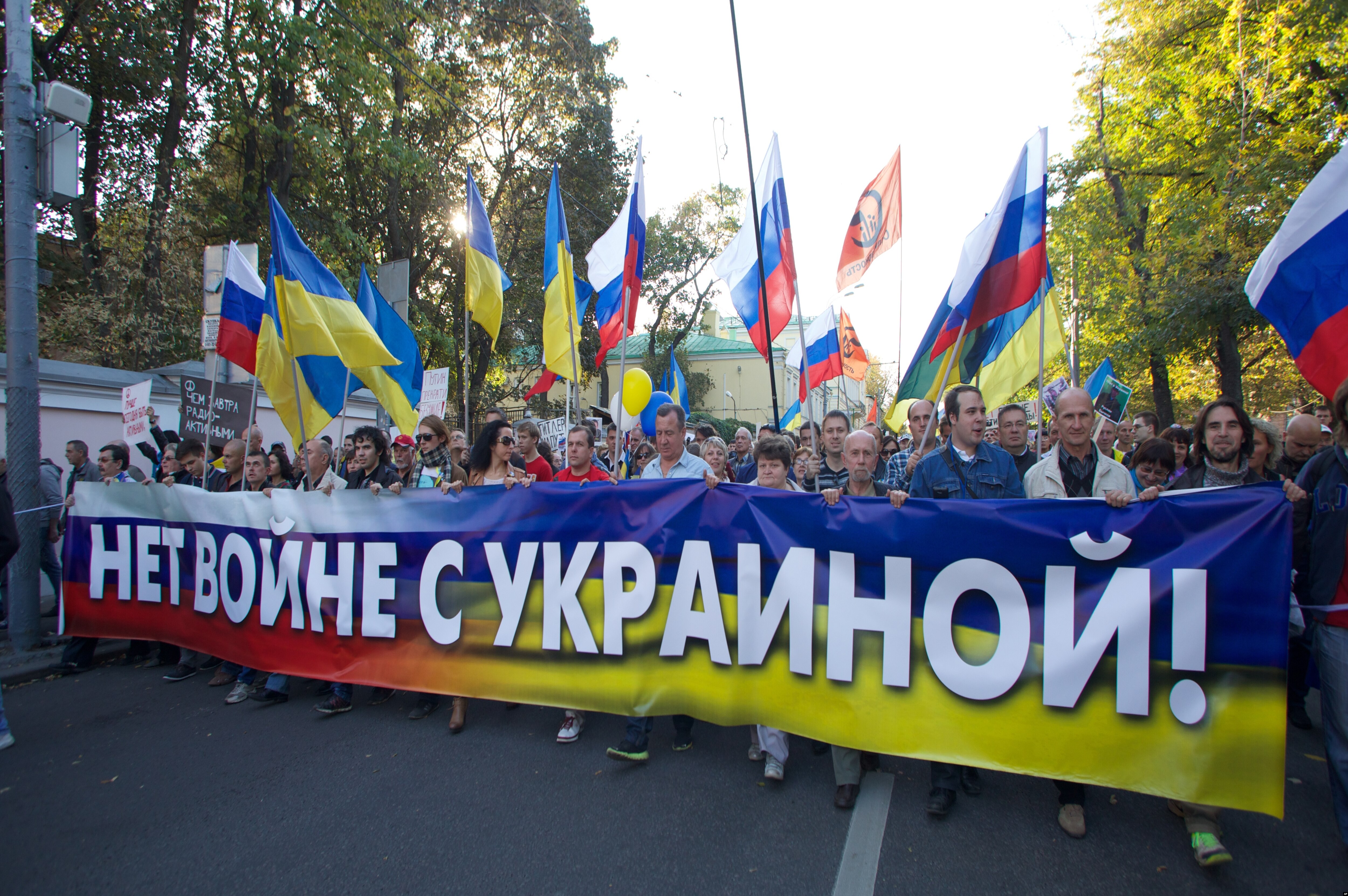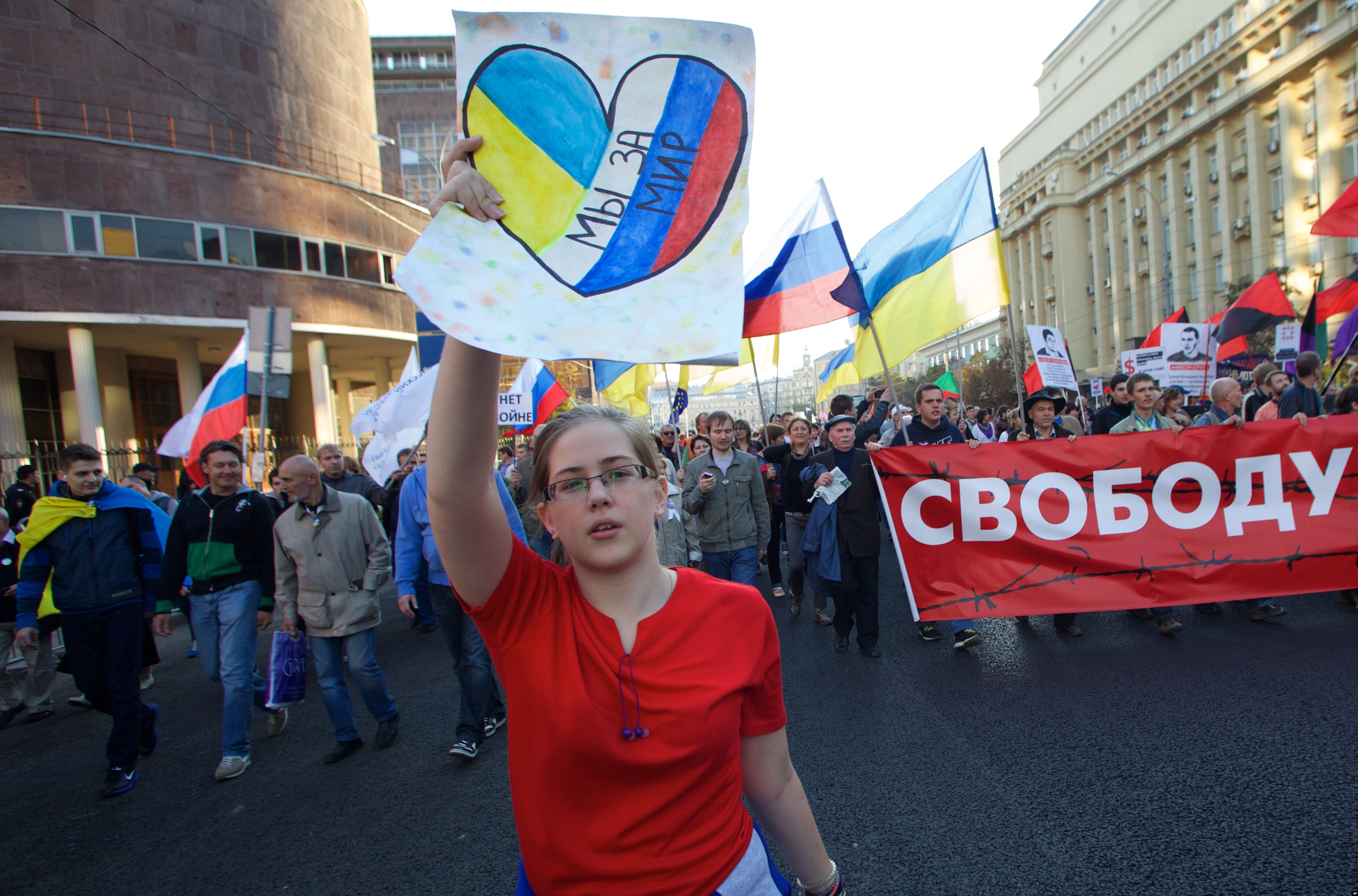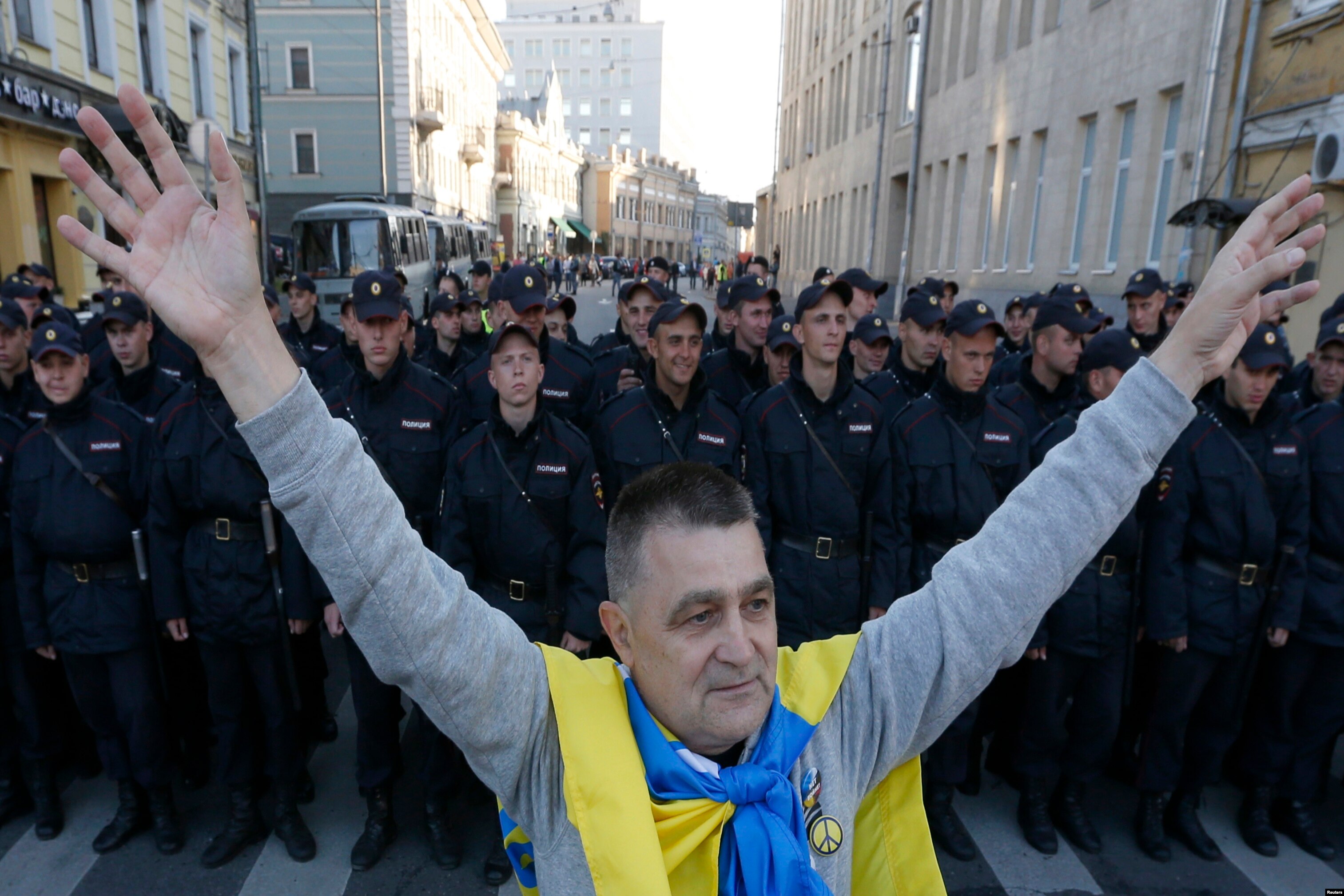Russian Opposition Holds Peace March for Ukraine
September 21, 2014 4:48 PM
MOSCOW—
Opposition activists and anti-war demonstrators marched in the Russian capital Sunday, urging peace in Ukraine and an end to Russia's military support for separatists, even though the Kremlin denies backing the rebels.
Organizers of the march said over 50,000 people took the streets in Moscow, but police claimed the number was exaggerated, putting it instead at 5,000.
It was for the second time this year that Russians demanded the Kremlin end what activists see as its military actions in Ukraine. But many of the marchers want more than just peace in Ukraine, they also want political change in Russia.
Peace march participant Daniel says he hates to see President Vladimir Putin and the Kremlin elite engaging in what he calls "destructive political activities."
“I think it is a big mistake. He is taking Russia into chaos, into anarchy, and nationalism, fascism. And, it should not be like this,” he said.
Small groups of protesters hurled abuse at the peace marchers, calling them traitors and fascists for supporting Kyiv over pro-Russian separatists in Ukraine. But it is President Putin who is behaving most like a dictator, says opposition leader and peace march organizer Boris Nemtsov.
“He lies in revenge for Ukraine's revolution, when Ukrainians took to the streets and dethroned the corrupt thief president Yanukovych. [Putin] is afraid it could be repeated in Russia. And, besides, he thinks if Ukraine is successful on the European path it is a threat to his own power,” said Nemtsov.
Censorship
Police confiscated some protest banners deemed too critical of Putin and what they said were Russia's actions in Ukraine. Although security was tight, some scuffles broke out when individuals attacked peace marchers.
Despite the show of strength, Russia's opposition activists acknowledge they are a minority voice that lost much steam from protests a few years ago when they demanded that Putin step down.
Their ranks were thinned by Kremlin repression, propaganda, and nationalism says Nemtsov.
“In reality many people are repressed and prosecuted. That’s number one. Number two - the good economic situation allowed Putin to muzzle those who were not satisfied with the economic situation. And the Goebbels-like, imperial hysteria he arranged in the mass media all has brought about the fall of the protest movement. And it became, to [a large] extent, a dissident movement,” said Nemtsov, adding that Sunday's peace march could help recharge Russia's opposition movement.
“To explain our views to people we must use the only opportunity: Facebook and other social networks, and some [independent] mass media outlets that are still alive,” he said.
But Nemtsov, also an advisor to Ukrainian leaders, says a lasting peace in Ukraine is not only up to Russia as Kyiv needs to enact tough reforms to remove deep-rooted corruption.











No comments:
Post a Comment